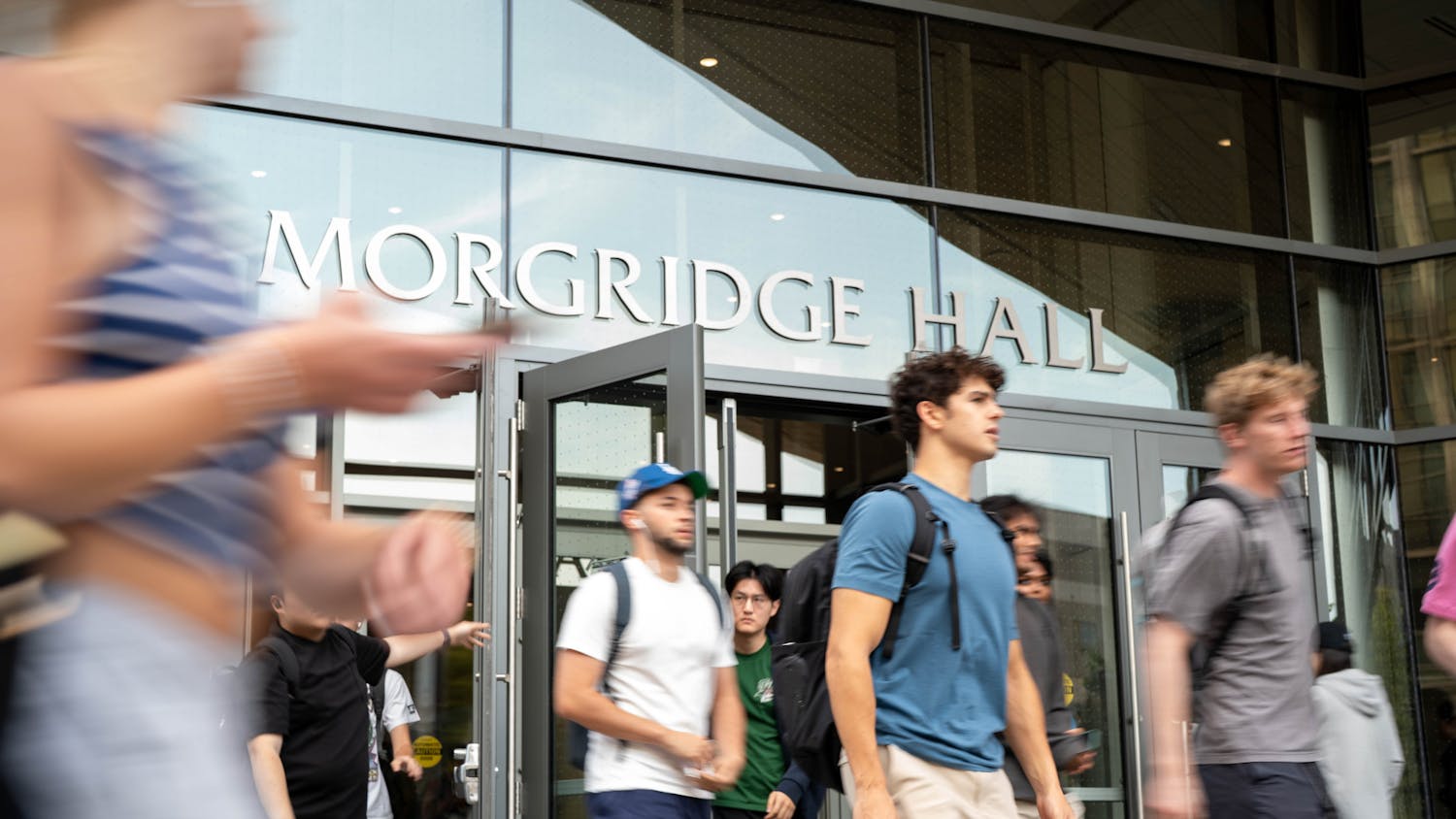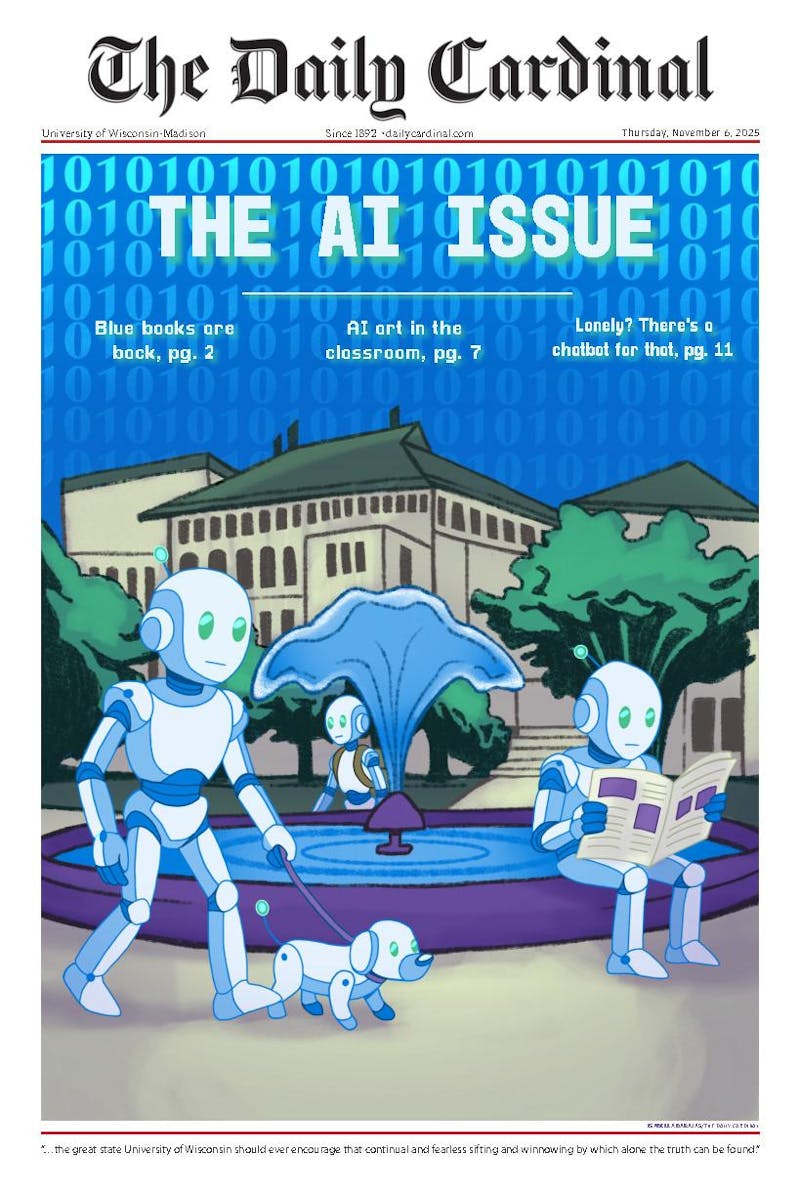Although the Wisconsin Supreme Court case of McConkey vs. Van Hollen in June failed to invalidate Wisconsin's constitutional amendment banning same-sex marriage, the overturning of Proposition 8 in California earlier this month could mean big changes for marriage laws nationwide.
Bill McConkey, a political science instructor at UW-Oshkosh, claimed the referendum, as it was presented to voters in 2006, violated Wisconsin's ""separate amendment rule,"" which prevents one amendment from tackling two separate issues.
The referendum, which received 59% of the vote in 2006, read: ""Only a marriage between one man and one woman shall be valid or recognized as a marriage in this state. A legal status identical or substantially similar to that of marriage for unmarried individuals shall not be valid or recognized in this state.""
According to McConkey, the ideas of same-sex marriage and same-sex legal status similar to marriage are separate issues. The court ruled 7-0 that both parts of the amendment addressed the same thing: the preservation of traditional marriage.
However, as written by Justice Michael J. Gableman, ""the question before us is not whether the marriage amendment is good public policy or bad public policy,"" unlike in Perry vs. Schwartzinagger, the case challenging Proposition 8, a ballot measure banning gay marriage in the state of California in November 2008.
The case, brought about by two same-sex couples who were denied marriage licenses, Kristin Perry and Sandra Steir of Alameda County, and Paula Katami and Jeffrey Zarillo of Los Angeles County, challenged the constitutional validity of denying marriage rights to same-sex couples.
Justice Vaughn R. Walker, the Chief Judge of the United States District Court for the Northern District of California, who oversaw the case, ruled in favor of the plaintiffs and deemed Proposition 8 unconstitutional.
""Proposition 8 fails to advance any rational basis in singling out gay men and lesbians for denial of a marriage license,"" Vaughn said in his decision. ""Indeed, the evidence shows Proposition 8 does nothing more than enshrine in the California Constitution the notion that opposite- sex couples are superior to same-sex couples.""
Political Science professor Howard Schweber said if this decision is upheld, it could be huge not just for California, but for the rest of the country. Unlike the McConkey case, the Perry case took place in federal court, and if it goes into appeals, which Schweber said is likely, it could be appealed all the way to the U.S. Supreme Court.
If played out on the national stage, the decision will determine marriage policy nationwide, because, as Schweber said, constitutional law automatically trumps state law.
Even though Julane Appling, CEO of Wisconsin Family Action, a pro-life, anti-same-sex marriage advocacy group, was disappointed by Justice Walker's decision, she said she looks forward to this case reaching the Supreme Court. Appling said even with the addition of Justice Elena Kagen, ""they will do the right thing.""
Appling defined ""the right thing"" as limiting marriage to a union between one man and one woman, because, as she said, when you tamper with the institution of marriage, there can be ""disastrous consequences.""
She used the legalization of ""no-fault"" divorce in the 1970s as ""a social experiment"" that has undermined the practice altogether. ""Marriage is not just about adult happiness,"" she said. ""Personal happiness is not the pinnacle of existence.""
Katie Belanger, the executive director of Fair Wisconsin, a group advocating for equal rights for Wisconsin's LGBT community, said she was excited by Walker's decision, but is not expecting national reform any time soon.
She said Fair Wisconsin would continue their work as usual on the state level, as there is no assurance the case will be brought to the Supreme Court soon or at all.
Although it can take cases like this years to reach the Supreme Court, if they choose to review it at all, Schweber said that a case such as this one would likely be expedited through the court system. Instead of years, he said this one could make it to Washington ""in a matter of months.""





